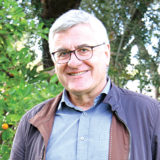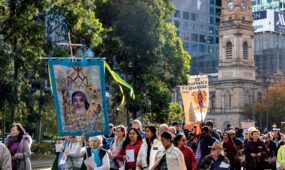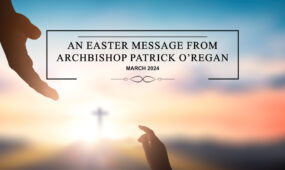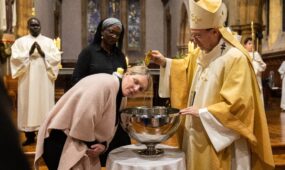Living the gift of communion
Opinion
Communion is one of the three key themes for the Synod on Synodality meeting in Rome this October and next year. The other two themes – mission and participation – are so closely related to communion that one can’t be properly understood without the others.

But here, I want to focus on the meaning of communion, particularly as it is spelt out in the synod’s working document for the first session, entitled For a synodal Church – communion, participation, mission. You’ll notice how mission and participation are also present.
Catholics often use the word communion to refer to the reception of the Eucharist – Holy Communion. We also use it to refer to our relationship with the Church throughout the world –the communion of the Church. It certainly encompasses both of those meanings.
Advertisement
Yet the Second Vatican Council sees the fundamental meaning of communion in our communion with God. God has created us in love to share in (or commune in) the divine life. God has spoken to us most clearly in the person of Jesus Christ and his historical life, and the Holy Spirit dwells in the Church, in the hearts of all believers, and is poured out over the world. So, you and I are drawn into the divine life through the person of Jesus Christ and in the Holy Spirit. This communion with God responds to the deepest searchings of the human heart.
In the New Testament, the Greek word that we translate as ‘communion’ originally meant participation in the good things that God offers – new life, love, and the gospel, but most especially the Eucharist. A key passage from St Paul’s first letter to the Corinthians expresses that powerfully: ‘The cup of blessing that we bless, is it not a sharing in the blood of Christ? The bread that we break, is it not a sharing in the body of Christ? Because there is one bread, we who are many are one body, for we all partake of the one bread.’ (10:16-17) So, the Eucharist makes present the whole mystery of Christ’s life among us and draws us into communion with him.
This understanding of the presence of Christ and the Spirit within the faith community leads us to see the Church itself as a communion – the communion of local congregations. It is this communion that we pray will be especially evident in the upcoming Synod, in which Archbishop O’Regan and Bishop Mackinlay will participate along with bishops and lay Catholics from around the world.
The Synod’s working document puts it in this way: ‘In a synodal assembly Christ becomes present and acts, transforms history and daily events, and gives the Spirit to guide the Church to find a consensus on how to walk together towards the Kingdom and to help all of humanity to move towards greater unity.’ (IL, p21)
In praying with the word of God, and in dialogue with one another, the members of the Synod will seek to listen to the Spirit, allowing the Spirit to guide their common deliberation for the future of the Church.
Yet, this unity does not deny one of the most powerful insights of the Synod so far. If our Church is to live the gift of communion, it requires the participation of all believers. The diverse gifts of every community must find their place in the Church. The working document makes exactly this point, garnered from the preparatory consultations: ‘One of the most significant gifts of the synodal journey so far is the rediscovery of the richness of our diversity and depth of our connectedness.
Advertisement
Diversity and interconnectedness do not threaten but rather provide the context for a more profound reception of our unity of creation, calling and destiny.’ (IL, p35)
And recognising the diverse gifts of each community means working to understand the diverse cultures that make up our church, coming to understand the world from the perspectives of those cultures, and in their terms.
The working document puts it this way: ‘A synodal church needs to learn how to better articulate the Gospel within local cultures and contexts, through a discernment that proceeds from the assurance that the Spirit gives the Church such a breadth that it can welcome any culture without exception. Proof of this is the fact that the local churches are already characterised by great diversity, which is a blessing.’ (IL, p39)
Finally, the communion of believers does not exist for its own sake; it lives, rather, as a sacrament of salvation for the world – a community through which all things might be renewed in Christ.
While such an understanding highlights the immense dignity of the Christian life, it also makes abundantly clear the profound challenge of living with integrity, faithfulness, and openness so that others might recognise in our common life the love of God in Jesus Christ through the Holy Spirit.
Fr James McEvoy is a priest of the Archdiocese and theology lecturer at Australian Catholic University, Adelaide.







